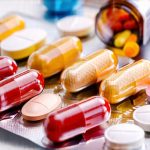For years, many individuals have relied on proton pump inhibitors (PPIs) and other acid-reducing medications to manage chronic heartburn and reflux. While these medications provide significant relief, prolonged use can inadvertently disrupt the delicate ecosystem within our gut – the gut microbiome. This disruption isn’t merely a side effect; it’s a fundamental shift that can have far-reaching consequences for digestion, immunity, nutrient absorption, and even mental wellbeing. Understanding how to rebuild trust in this vital microbial community is crucial for long-term health, especially after weaning off these medications or seeking alternative strategies for reflux management.
The gut microbiome isn’t simply a collection of bacteria; it’s a complex web of trillions of microorganisms – bacteria, fungi, viruses, and archaea – that live in our digestive tract. These microbes play an essential role in breaking down food, synthesizing vitamins, training the immune system, and protecting against harmful pathogens. Medications like PPIs, while effectively reducing stomach acid, can create an environment less hospitable to beneficial gut bacteria, allowing potentially problematic species to flourish. This imbalance, known as dysbiosis, is often at the root of many post-PPI health concerns. Rebuilding diverse microbiome requires a multifaceted approach that addresses diet, lifestyle, and targeted support for microbial restoration.
The Impact of Reflux Medication on Gut Health
Prolonged use of acid-reducing medications fundamentally alters the digestive environment. Stomach acid isn’t just responsible for breaking down food; it also acts as a critical barrier against incoming pathogens and helps regulate the composition of the gut microbiome. By suppressing stomach acid, PPIs reduce this natural defense mechanism, potentially allowing harmful bacteria to colonize the upper gastrointestinal tract. This can lead to Small Intestinal Bacterial Overgrowth (SIBO), where excessive bacteria reside in the small intestine, interfering with nutrient absorption and causing bloating, gas, and abdominal discomfort.
Furthermore, reduced acidity impacts the ability of the gut to properly digest food, specifically proteins. Incomplete protein digestion can result in undigested food particles entering the large intestine, feeding undesirable bacterial populations and exacerbating inflammation. The resulting leaky gut syndrome – increased intestinal permeability – allows undigested food particles and toxins to enter the bloodstream, potentially triggering immune responses and systemic inflammation. It’s a vicious cycle where medication intended to alleviate discomfort inadvertently contributes to further digestive issues.
Finally, it’s important to acknowledge that PPIs can also affect nutrient absorption. Certain vitamins and minerals, like vitamin B12, iron, calcium, and magnesium, require stomach acid for optimal absorption. Long-term suppression of acid production can lead to deficiencies in these essential nutrients, compounding the health challenges associated with gut dysbiosis. Addressing these deficiencies is an integral part of the rebuilding process. You might find it useful to rebuild appetite during this time as well.
Dietary Strategies for Gut Restoration
The foundation of any gut healing protocol lies in dietary modification. A carefully curated diet can help restore microbial balance, reduce inflammation, and support optimal digestion. Here’s a step-by-step approach:
- Elimination Phase: Begin by removing common irritants like gluten, dairy, refined sugar, processed foods, caffeine, alcohol, and artificial sweeteners. This phase helps identify food sensitivities that may be contributing to gut inflammation. It’s typically followed by a reintroduction phase to pinpoint specific triggers.
- Focus on Whole Foods: Emphasize whole, unprocessed foods – fruits, vegetables, lean proteins, and healthy fats. Incorporate a diverse range of plant-based foods to provide prebiotic fibers that nourish beneficial bacteria. Think colorful salads, steamed vegetables, and fruit with every meal.
- Fermented Foods: Introduce fermented foods like yogurt (if dairy is tolerated), kefir, sauerkraut, kimchi, kombucha, and miso into your diet. These foods are rich in probiotics – live microorganisms that can help repopulate the gut with beneficial bacteria. Start slowly to avoid digestive upset.
Beyond these core principles, consider incorporating specific food groups known for their gut-healing properties. Bone broth provides collagen and amino acids that support intestinal lining repair. Omega-3 fatty acids found in fatty fish (salmon, mackerel) have anti-inflammatory effects. Fiber-rich foods like oats, beans, and lentils feed beneficial bacteria and promote regular bowel movements. You can soothe the gut with careful food choices too.
The Role of Prebiotics and Probiotics
While fermented foods offer a natural source of probiotics, supplementation can be considered under the guidance of a healthcare professional. Not all probiotic strains are created equal; different strains have different effects on the gut microbiome. A targeted approach based on individual needs is often more effective than taking a generic probiotic supplement. Soil-based organisms (SBOs) are increasingly recognized for their resilience and ability to thrive in the digestive tract, offering an alternative to traditional probiotics.
Prebiotics are equally crucial. These are non-digestible fibers that act as food for beneficial gut bacteria, promoting their growth and activity. Excellent sources of prebiotics include:
– Garlic
– Onions
– Leeks
– Asparagus
– Bananas (slightly green)
– Apples
– Oats
Combining prebiotic and probiotic supplementation—a synbiotic approach—can create a synergistic effect, enhancing the effectiveness of both. However, introducing these supplements too quickly can sometimes cause bloating or gas, so it’s essential to start with low doses and gradually increase as tolerated. Learning gut health simple is a key component of long term success.
Lifestyle Factors Influencing Gut Health
Diet is paramount, but gut health isn’t solely determined by what we eat. Several lifestyle factors play a significant role:
- Stress Management: Chronic stress negatively impacts the gut microbiome, increasing inflammation and reducing microbial diversity. Incorporate stress-reducing practices like meditation, yoga, deep breathing exercises, or spending time in nature.
- Sleep Quality: Adequate sleep is essential for overall health, including gut health. Aim for 7-9 hours of quality sleep per night to allow your body to repair and restore itself.
- Regular Exercise: Physical activity promotes gut motility (the movement of food through the digestive tract) and reduces inflammation. Even a moderate amount of exercise can have beneficial effects on the gut microbiome.
- Mindful Eating: Pay attention to how you eat, rather than just what you eat. Slow down, chew your food thoroughly, and savor each bite. This improves digestion and allows your body to better absorb nutrients.
- Antibiotic Use (Minimize): While sometimes necessary, antibiotics can disrupt the gut microbiome. If antibiotic use is unavoidable, consider supplementing with probiotics after completing the course to help restore microbial balance.
Rebuilding gut health after years of reflux medication isn’t a quick fix; it’s a journey that requires patience, consistency, and a holistic approach. By focusing on dietary changes, incorporating prebiotics and probiotics strategically, and adopting healthy lifestyle habits, individuals can significantly improve their digestive function, boost their immunity, and reclaim their overall wellbeing. You can handle gut health even when life gets hectic! Remember to consult with a healthcare professional for personalized guidance and support throughout this process. And don’t forget the importance of staying social without sacrificing.


















